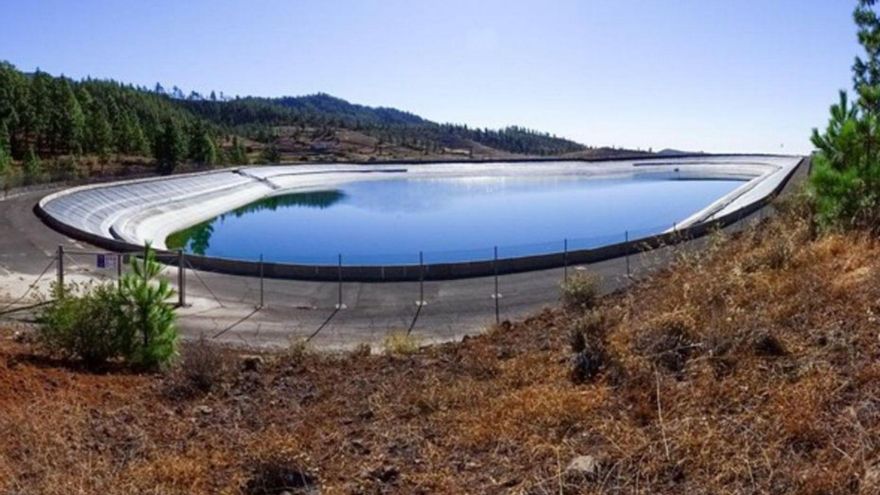
The drought does not subside in Tenerife and maintains the ponds that supply water to the island countryside in volumes minimums of the historical series just one month until the arrival of winter. The 23 reservoirs managed by the Tenerife Council throughout the island geography, through the public company Balten, were in the last balance sheet three days ago at just 18.1% volume over their capacity. It is the worst figure in the last five years for the month of November and the third lowest in the historical series. Only in the months of November 2017 (11.6%) and 2010 (14.6%) did the Tenerife ponds have less water for irrigation than now.
The water situation continues to be “critical,” Valentín detailed this Wednesday. Gonzalez (PP), CEO of Primary Sector. However, he explained that supply to agriculture and cattle raising “it is still guaranteed” and the situation is beginning to ease, while waiting for rainfall, “due to the slight drop in demand.” “The demand for water is decreasing a little due to the winter schedule, although it is still hot,” González explained. The person responsible for rural island policies recalled that restrictions are only being applied, through rotations in the use of water for irrigation, in the municipality of Tacoronte. “And so far in this area we have not received any complaints of lack of water for agricultural holdings,” the counselor said.
The Tenerife Corporation has opted for deploy more portable desalination plants in different parts of the Island to fight against drought and guarantee the irrigation of the fields with regenerated water – which has to pass through these plants for use – and from the sea. The first emergency measure of this crisis is already in operation after being announced last July precisely after a meeting with representatives of the primary sector: the installation of two portable desalination plants on Isla Baja that generate 2,000 cubic meters per day and that supply the municipalities of Buenavista del Norte, Garachico, Los Silos and El Tanque. It is also planned to place another desalination plant in the Güímar Valley, in the south of the Island.
In addition, The Cabildo is committed to the Tenerife countryside to prepare a project to deploy other plants of this type starting next year in points of greatest need, due to the demands of farmers and ranchers. “The bet is on purified and desalinated water due to the lack of rainfall that is being recorded, especially this year 2023,” González said.
The situation began to worsen in the month of March and became critical in summer as a result of the lack of precipitation and continuous heat waves, never before seen in the history of Canary Islands. The drought bottomed out in August. The rafts reached historic lows that month. The driest year since meteorological records have been recorded and the increase in demand left the 23 warehouses managed by Balten at 12.2% volume over their total capacity. It was the worst data in a decade and the third worst of this 21st century.
At this moment, in the middle of autumn, they are at 18.1%, with 725,000 cubic meters for a capacity of five million. The 16 in the North that Balten manages are at 14.6% of their capacity, while those in the South are at 23.2%. It must be taken into account that the Barranco de Benijos reservoir, in La Orotava, is completely empty due to works to improve waterproofing.















